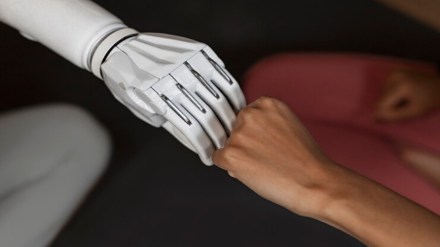A new study by Common Sense Media, a U.S.-based nonprofit focused on children and families, reveals that 72% of American teenagers aged 13 to 17 have tried AI companions, chatbots designed for personal interaction rather than task-oriented functions like answering questions or completing homework.
The definition of “AI companion” in the study extends beyond specialised platforms like Replika or Character.AI to include general-purpose bots such as ChatGPT and Claude, when used for personal or conversational engagement.
Of the teens surveyed, 52% identified as regular users of such AI companions. Within this group, 13% said they interacted with these chatbots daily, while another 21% reported chatting with them several times a week. Interestingly, boys (31%) were slightly more likely than girls (25%) to say they had never used an AI companion.
More about the study
The findings are based on a nationally representative survey of 1,060 teens conducted by researchers at NORC at the University of Chicago during April and May 2025. The growing adoption of AI companions comes amid rising concerns about their psychological impact on young users. Character.AI, for instance, is currently facing lawsuits related to a teenager’s suicide and for allegedly promoting violent content.
Despite the concerns, the study offers early insight into how adolescents are integrating AI into their daily lives, often turning to these tools for virtual companionship, emotional support, or role-playing. Among those surveyed, 46% described AI companions as tools or programs, while 33% saw them as means for social connection. The most common reasons for using them included entertainment (30%), curiosity (28%), advice-seeking (18%), and constant availability (17%).
No trust
Trust in these tools remains low: 50% of teens said they do not trust the information provided by AI companions. Younger teens (ages 13–14) were more likely to trust AI advice (27%) than older teens (20%).
One-third of teens said they found conversations with AI more satisfying than those with real friends, but the majority (67%) still preferred human interactions. Notably, 39% of users said they applied skills practised with AI—particularly social skills, conversation starters, advice-giving, and emotional expression—to real-world scenarios.
Reassuringly, 80% of teens who use AI companions said they still spend more time with real friends than with their chatbots. Only 6% said the opposite.
